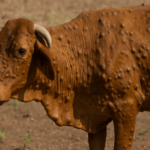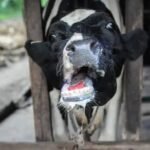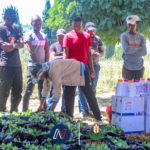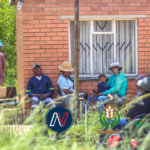At the heart of South Africa’s agricultural transformation lies a question that continues to stir debate: Can organised agriculture truly bridge the historical and structural gap for black farmers? At the recent Food For Mzansi’s Young Farmers Indaba, held at the Lavender Kontrei Market in Pretoria, agricultural leaders, policymakers, and young farmers came together to chart a course for an inclusive and sustainable farming future.
Organised Agriculture: The Road to Cohesion
Day two of the indaba focused squarely on the future of new-era farmers, where experts called for a shift from rhetoric to action.
Leona Archary, CEO of the Agricultural Development Agency (Agda), argued that the conversation around land reform must evolve.
“Access to land alone is not enough. We need innovation in how land is allocated, particularly state-held trust land. But more than that, we need cohesive collaboration between government, industry, and farmers,” she said.
Archary warned that without title deeds or land security, black farmers remain locked out of financial systems.
She urged industry leadership to innovate and reimagine partnerships with government to unlock land potential.
Transformation Begins with Farmers
Johann Kotzé, CEO of AgriSA, offered a stark message; “Transformation won’t happen if we wait on government. It must start with us, the farmers.”
He stressed that land is indeed the first step, but so is agency—farmers taking initiative to drive transformation themselves.
For Dr Tobias Doyer, CEO of Grain SA, land expansion must be coupled with innovation.
“We need to expand grain production strategically—using technology and fertiliser optimisation as our compass.”
In the dairy sector, Fanie Ferreira of the Milk Producers’ Organisation (MPO) noted the steep learning curve.
“If you’re not born into farming, it’s going to be tough. Dairy is capital-intensive, land-dependent, and unforgiving,” he said.
His remarks underscored how access, knowledge, and support remain elusive to many aspiring farmers.
Bridging the Gap with Technology
Karidas Tshintsholo, co-founder and CEO of Khula!, provided a hopeful counterpoint—technology as a great equaliser.
“There are two agricultures in South Africa: one thriving, one surviving. Technology can bridge that divide,” he said.
He shared how Khula!’s digital platform helps farmers bypass traditional gatekeepers and access major buyers like PepsiCo and Food Lovers Market directly.
The future, Tshintsholo added, lies in AI. From early pest detection to precision spraying and on-demand technical advice, Khula! is rolling out tools that could redefine smallholder resilience.
“It’s about levelling the playing field. Data is power—and it’s time new-era farmers have access to it.”
Backing the Next Generation: Investment, Skills & Strategy
The Indaba was also a rallying call for youth empowerment in agriculture. Industry titans like Land Bank’s Themba Rikhotso, AgriSETA’s Dr Innocent Shirovha, and Karan Beef’s Ivor Karan emphasised the importance of long-term investment—in both skills and infrastructure.
“You can’t just start farming big if you don’t have the experience. The biggest value in a business plan is skills,” warned Rikhotso, revealing that Land Bank approved over R2 billion in blended finance in the past year.
Land Bank Insurance Company’s Pascal Siphugu echoed this, adding that 2,000 farmers—half of them young women—have been trained in climate resilience and sustainable practices.
Yet, training without tools is futile.
“Agricultural academies can’t grow if learners don’t have equipment,” said Dr Shirovha.
He called for stronger public-private partnerships to close such gaps.
Tech as a Tactical Edge
John Deere’s Ayanda Nhlapo shared how their precision agritech helps smallholders make real-time decisions from field data.
“Our operations centre translates data into action. It’s about smart farming, not just big farming.”
Meanwhile, Rainbow Chicken’s CEO Marthinus Stander encouraged youth to collaborate with stakeholders and unlock South Africa’s global agricultural potential.
Beyond Money: Strategy Before Seeds
In the final session, experts dispelled a common myth: funding alone won’t guarantee success.
“Some young people think farming is just putting seeds in the ground,” said Nontsikelelo Makaula of the National Youth Development Agency.
“We train them in the full value chain—from skills and compliance to financial literacy.”
Tshego Selepe from Kgodiso Development Fund outlined their holistic model: production finance, market access, and technical support.
“Farmers must grow what the market wants—then we support them with pest and disease management.”
Land Bank’s Christopher Chaka urged farmers to secure markets before planting. “Don’t bury your money if you don’t know who’s buying. That’s suicide,” he warned.








